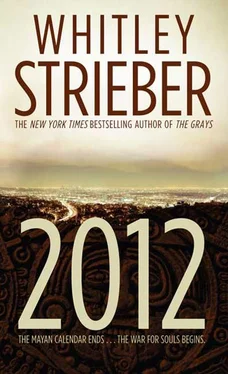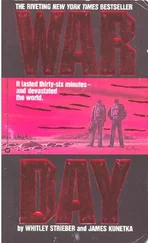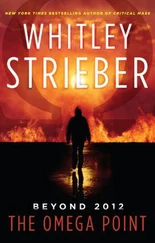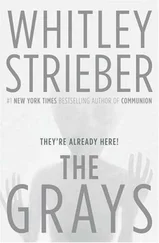The Wilsons and a family Martin didn’t know except to nod to arrived in SUVs and went hurrying into the church. They must have been sleeping in their clothes. As he passed, Timmy Wilson said, “They’re coming up Six Mile, slow and low.”
His words made Martin feel literally sick. He telephoned Lindy. “Hi, hon, what’s your situation?”
“We’re leaving the house.”
“You need to hurry, Lindy, they’re over Six Mile Road.”
“Oh, God, Martin.”
According to Homeland Security, people alone did not survive, none of them, not ever. Groups supposedly had a better chance. They still got flyers dropped from time to time. He speculated that Bo Waldo might have something to do with that. There was a man who was not going to be beaten, unlike those two generals, who’d been edgy, bitchy thoroughbreds.
“Lindy, cut across the Walker place to the highway.”
“I’ll wreck their garden.”
“Do it now!”
She closed the phone—unless something else just happened. A wave of nausea almost made Martin gag.
“You okay?” Bobby asked.
“Lindy’s out there with the kids. Where’s Rose?”
“Same thing, coming in fast as she can.”
“But not down Six Mile Road.”
“Goddamn, buddy, that’s right.”
Bobby, who had been his friend since their boyhood in this community, met his eyes. Bobby had stayed, Martin had gone on to university. But he’d returned in the end, discovering after Berkeley and Stanford that one did not leave Kansas so easily.
“I never thought this would come,” Bobby said as the two of them watched the sky and the people now hurrying into the church.
“We’re not in Kansas anymore, Bobby. Kansas is gone with the wind, I’m afraid.”
“You think it’s gonna be all of us, Martin?”
A wave of what could only be described as woe swept over Martin. He said, “The pamphlet says that more survive if we congregate.” It had been dropped by Homeland Security last week.
“What I feel like doing is hiding. That’s what feels right.”
“I would assume that we can’t hide.”
The pamphlet, which had been dropped from a Goodyear blimp, of all things, was the only defense the government had offered. In fact, the most terrifying thing about the whole business was the silence from Washington and Topeka.
George and Moira Fielding came huffing up, she in a slip and bra, he in baggy boxer shorts and flip-flops. “There’s screaming coming from down the end of Constitution,” he gasped.
Serenity Lodge. Forty old folks. Martin looked at Bobby. “You want to go over there?” He thought to himself that Lindy and the kids must pass right in front of the place on their way in.
“I’m needed here.”
It wasn’t cowardice, it was simple truth.
Across town, Martin could see the steeple of the First Church of Christ light up, and heard its bell join theirs. Saint Peter’s was invisible behind the huge oaks that stood along Evans behind Main, but he knew they’d be lit up, too. They didn’t have a working bell.
Emma Heard got out of her car. “There was that light just like they say, it was horrible, horrible!”
“You were at the home?”
“I was in my office when—oh, Jesus, I tried to help them, they were all in their rooms—” She broke down in sobs and Martin looked off down Third, looking for some sign of Lindy’s blue Dodge truck.
“Did you see any actual attacks?” Bobby asked.
“When I ran out, I saw the light coming down on the building, out of one of those things, the disks. It looked like some kind of goop, a glowing membrane—really bright—like on Nightline that time, that video of it. I got the hell out of there, lemme tell you.” She lowered her eyes. “I saw it slide down in the windows, and I heard—I heard—oh, Bobby, the screaming.” She paused, then added in a tiny voice, “They’re all headed north now, every single one of them that can walk, and in their pajamas, poor things.”
Then she noticed Martin. She came close to him. At forty, she was still beautiful. She’d been his older woman when he was fourteen and she twenty. They had cuddled and touched, and he’d learned mysteries from her that still inspired the deep, deep joy he took in women. In Lindy, now, only her.
She clutched at his shirt. He took her by the shoulders and turned her toward the church. “Go inside, do it now.” She walked away with a curious, gliding motion. Martin watched her. “You sure she’s not…affected?”
“Nah, that’s just shock,” Bobby said. “Right outta the book.”
“Jesus will help us,” Mrs. Oates said as she came up the walk. “Never you mind, Jesus will help us.” She went past them, unseeing, glassy-eyed with terror.
“The Lord sure hasn’t been helping us much lately,” Bobby said, but softly, as if it was a kind of dirty secret—or, what he was more likely to think, a blasphemy.
As a scientist, Martin had grown past his childhood piety. Nowadays, while he wasn’t against religion, he just didn’t see the mechanism of the spiritual.
Bobby and Rose brought their kids here to Methodist every week. Martin and Lindy had chosen not to visit the burden of organized religion on Winnie and Trevor. Trevor had been delighted at not having to join the acolytes of the Anglican Communion in America. He’d dreaded Latin.
People everywhere were taking the horrific business that was unfolding in the world to mean that the soul was real. No less a luminary than the physicist Sir Roger Penfold had called it “the profound organ” because of the way it appeared to control memory and emotion. Given that it consisted exclusively of electrons, the belief that it was immortal had turned out to be entirely correct. Energy is indeed immortal. But could it be conscious in its own right outside of the body, or remain a coherent structure after death? Martin didn’t understand how that could be, and he doubted that anybody else did, either.
He did understand the extraordinary irony that the attack on the soul was what had led to its discovery. The scientific community’s soul blindness had only been lifted when the human soul began to be taken, and we could see, hear, and feel the consequences.
To Martin, as a scientist, this did not mean that the gods were therefore real. But the average person had taken proof of the soul to mean that his particular gods, also, existed. So churches and temples across the world were jammed day and night with people pleading for help from their deities.
Martin viewed things differently. He was fascinated that this plasma could be drawn out of a human body, as shocked as everybody else at the changes that resulted. But as far as it being the ka of the Egyptians, the jiva of the Hindus, the hun of the Chinese—any of those concepts—the folkloric soul—well, that remained unproven. It was simply an organ of a type they had not previously recognized, with a profound function, most certainly—in fact, a function that explained why we were different from animals, because of the way it preserved memories and delivered them to the brain for processing. But it had not confirmed the reality of the gods, at least not for this intellectual, nor was it clear that it survived in any coherent way after death.
Clearly, though, the removal of the soul was hell on the organism, and it was hell here in Kansas tonight, and maybe across the entire country, but before communications had failed, the real hell had been unfolding in the jam—packed, exposed third world, with swarms of the disks gushing each night like vast formations of locusts out of the fourteen great, black lenses that ringed the world, and people by the millions being torn apart in this strange new way night after hellish night.
He pulled his worn copy of the Homeland Security pamphlet from his pocket. “Approach damaged individuals with extreme caution. Their state is unknown and, while generally passive, they can be unexpectedly violent.”
Читать дальше












